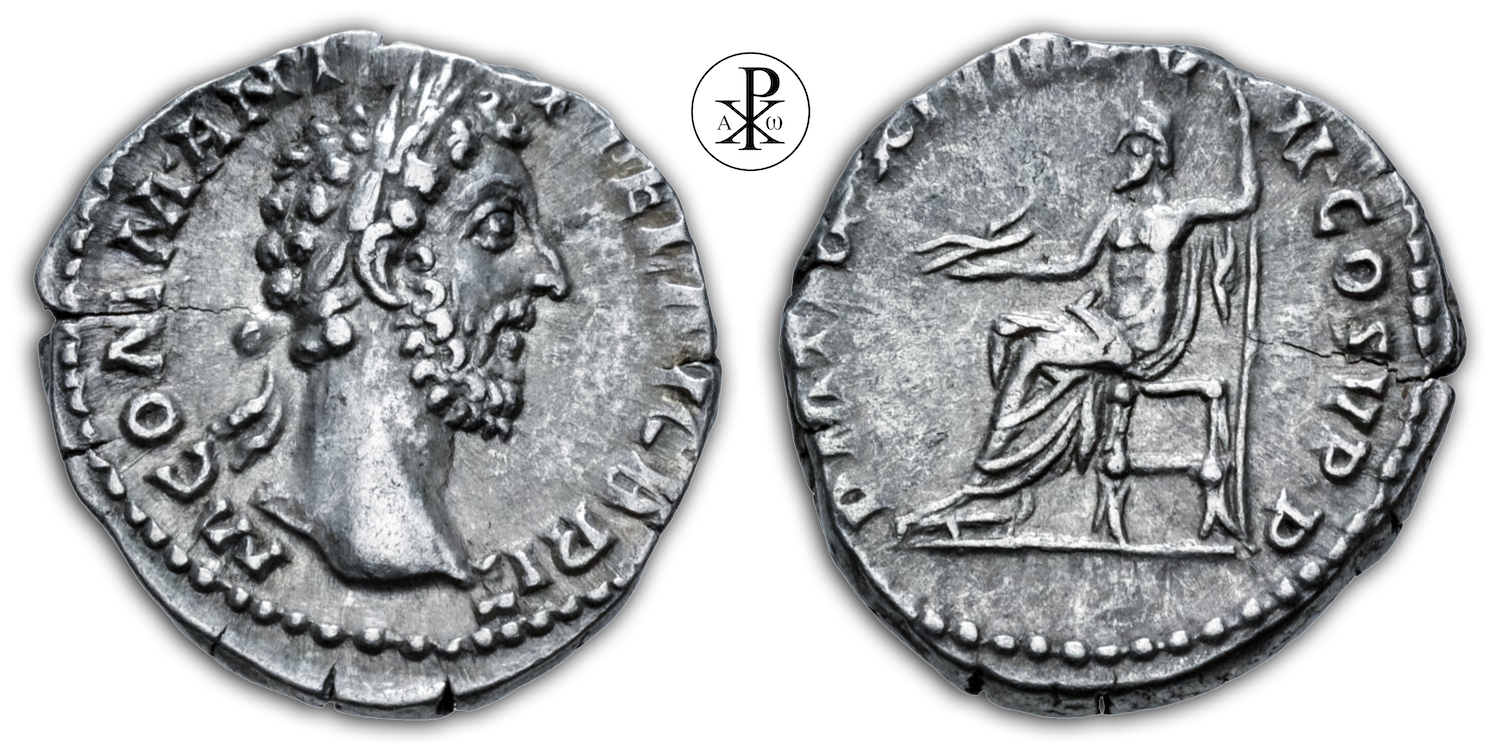Imperator Caesar Marcus Aurelius Commodus Antoninus Augustus
Reign: Commodus
Mint: Rome
Date: 186 AD
Nominal: Denarius
Material: Silver
Diameter: 17mm
Weight: 3.51g
Reference: RIC III Commodus 117a
OCRE Online: https://numismatics.org/ocre/id/ric.3.com.117a
Rare: –
Provenance: CNG Classical Numismatic Group Lancaster, USA (Auction 533, Lot 554)
Pedigree: –
Obverse: Head of Commodus, laureate, right
Inscription: M COMM ANT P FEL AVG BRIT
Translation: Marcus Commodus Antoninus Pius Felix Augustus Britannicus
Translation: Marcus Commodus Antoninus, the pious, the fortunate, Augustus, conqueror of the Britons
Reverse: Jupiter, half draped, seated left, holding thunderbolt in extended right hand and vertical sceptre in left hand
Inscription: P M TR P XI IMP VII COS V P P
Translation: Pontifex Maximus, Tribunicia Potestate Undecima, Imperator Septimum, Consul Quintum, Pater Patriae
Translation: High priest, holder of tribunician power for the eleventh time, Imperator for the seventh time, consul for the fifth time, father of the nation
Comment: The year 186 AD was marked by uprisings and unrest that threatened Commodus’ power base. In Germania superior the so-called “bellum desertorum” was raging, led by the deserted soldier Maternus. Herodian reports that Maternus had roamed Gaul and Spain with his band of robbers, raiding and plundering major cities. Commodus then wrote to the commanders-in-chief in the provinces concerned “under the most violent threats of wrath” and ordered an army to be assembled against the robber bands. The unrest spread even further as free Germanic tribes came across the Rhine. Possibly there were also mutinies of troops in the provinces described, as a passage from the Historia Augusta testifies. At the same time, the mutiny of the soldiers in Britain continued. The soldiers on the island were probably still demanding a new emperor. Commodus entrusted the supreme command to Pertinax (the later emperor), who also arrived in Britain in 185 AD. Pertinax tried to calm the situation – but the revolt of a legion almost cost him his life. The type of denarius issued here in 186 AD – with Jupiter and his bundle of lightning – could be connected with the deserters, mutineers and oathbreakers. Jupiter was responsible for seeing that oaths were kept and if an oath was broken, Jupiter punished the oathbreaker with a thunderbolt. Likewise, he could influence victories, strengthen and preserve power in politics. Lightning is the punishing weapon of the father of the gods. To it Jupiter owes his power and greatness, his superior position in the world of the gods. In myth, lightning can decide a battle, turn evil away from people and punish hubris, overconfidence.
